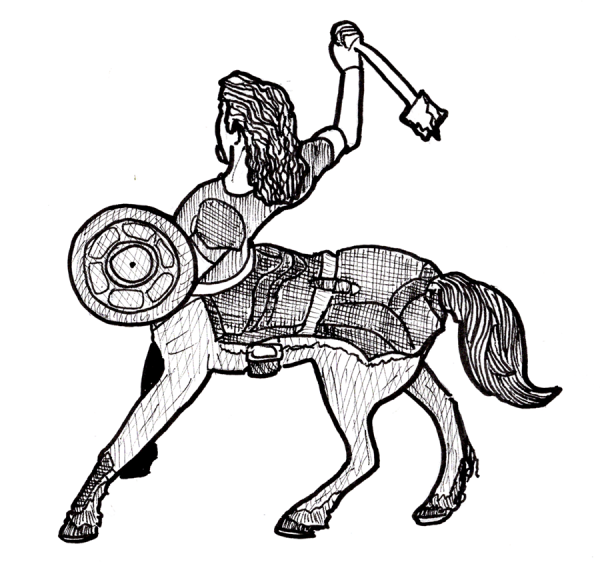
One of the things I find about Christian media is that even a bad essay, story or movie is likely to have a kernel of truth in it. Not that Christian media can’t be badly done or bad theology – far from it – but it’s almost like, perhaps, the inspiration of the truth is likely to shine through into the text.
People who publish Christian literature encounter this all the time: many people who submit their writing feel that it is divinely inspired, down to the last word and letter, but the truth is, whether the authors are inspired or not, their texts are often filled with typos and bad grammar, or simply need development.
But there’s still likely to be good stuff in there. In an earlier essay I mentioned The Last Temptation of Christ, which does a better job of anything I’ve seen of humanizing the struggle of Jesus, who was both divine and man. And that includes The Passion, described by Pope John Paul II as “it is as it was.”
But The Last Temptation also has the character of Jesus uttering his “break the cycle of evil” speech to Judas, which is the best justification for “turn the other cheek” that I’ve seen, as well as a revisionist interpretation of Judas as the super-apostle whose betrayal of Jesus helped fulfill Jesus’s mission.
That interpretation certainly isn’t biblical, but in the context of the story, having two characters on opposite poles – Jesus, the uncertain Messiah, Judas, the certain Zealot – enabled the filmmakers to explore the heart of Jesus’s teachings and his sacrifice in a very personal way.
Another example is The Passion, which feels like a live re-enactment of the Stations of the Cross. But knowing that the hand shown hammering the nails into Jesus’s flesh is Mel Gibson’s hand, the director, intended as a stand-in for all of us, reminds us of the purpose of Jesus’s sacrifice for our sins.
Another such movie is Prince Caspian. I prefer The Lion, the Witch and the Wardrobe as a movie, but even though I liked it, the betrayal, sacrifice and resurrection depicted in that book or movie always struck me as a bit forced – C. S. Lewis being a bit too blatant about the allegory he wanted to convey.
The Chronicles of Narnia: Prince Caspian, has a similar flaw when one character says “Things never happen the same way twice,” which might be news to the author of Ecclesiastes 1:9: “What has been will be again, what has been done will be done again; there is nothing new under the sun.”
That was a transparent excuse for C. S. Lewis to write himself out of the plot hole where he’d created the same setup for a battle as the previous book but wanted it to be resolved a different way. From a craft perspective, the correct approach is to re-arrange the book’s events to create a different climax.
But despite these flaws, the movie – I don’t remember if this is in the book – has the brilliant line, “Exactly who are you doing this for, Peter?” when Peter makes a bad choice out of self-aggrandizement. Again, I felt like this was heavy handed – but it made an important point.
In Christian theology, God created the universe; God is infinitely good; and ultimately doing God’s will, not our own, is the difference between doing good and falling into sin. Doing God’s will doesn’t mean you can’t go get a drink of water when you’re thirsty, but it does mean you need to think about your purpose.
We take on many projects in our lives – for me, building a robotic navigation stack, or working on a 21-book novel series, or completing a webcomic – or working on a Lenten series explaining my theology in terms that might possibly make sense to other human beings who don’t live inside my head.
But these things are not God’s will by themselves. Not that they can’t be consistent with God’s will – I use projects that have a religious nature, be it service on the church Vestry, writing a Lenten series, or writing books religious characters – as a way to expose me to and hopefully draw me to God.
But consistent with is not equal to. Take the Dakota Frost, Skindancer novel series, on the surface about a magical tattooist, but also about a Christian in a world of monsters and magic. I’ve learned a lot from the situations I put Dakota through, and developed my own ideas of radical forgiveness from that.
But finishing those 21 books – I’ve got 3 published, and 4 more written, with drafts going far out – is just a temporal task in this world. Even if it is a good work, that’s not going to get you into heaven, and if you’re doing a good work for a wrong reason, it will rapidly go bad on its own.
So “Who are you doing this for?” is a key question we should ask ourselves. Are the things we have committed to things that we’re committed to for the right reasons? Because, no matter how far down the path we have gone, if it is the wrong path, Jesus will be waiting there to show us the right way.
-the Centaur
Pictured: A random centaur, because there are centaurs in Narnia.